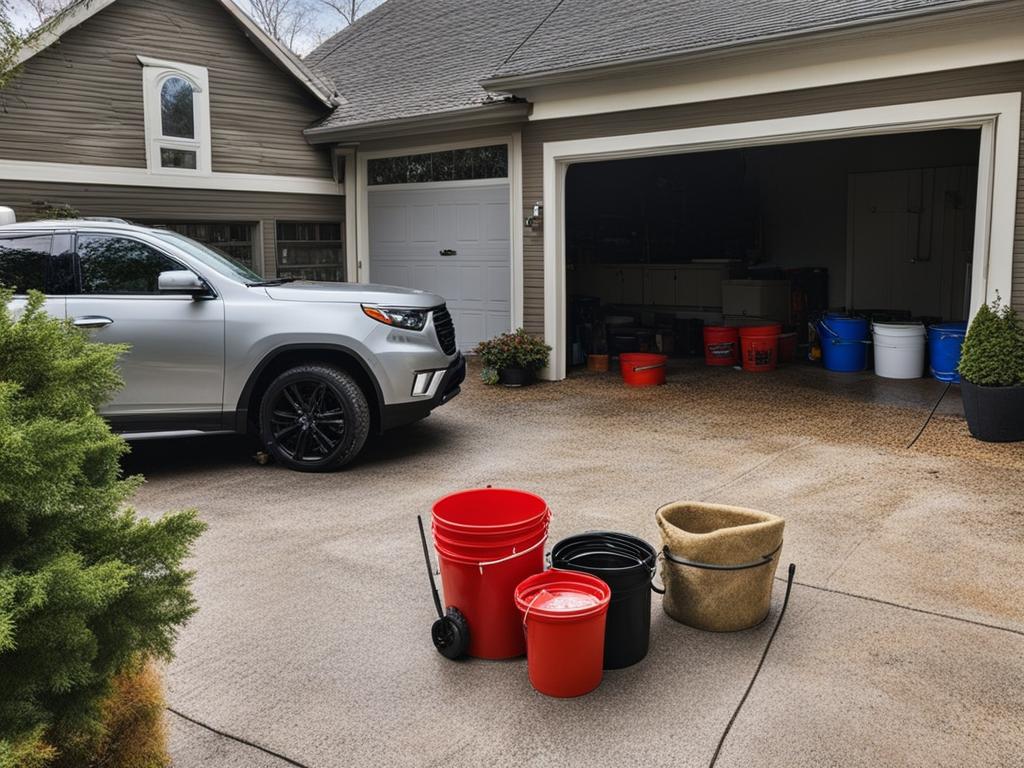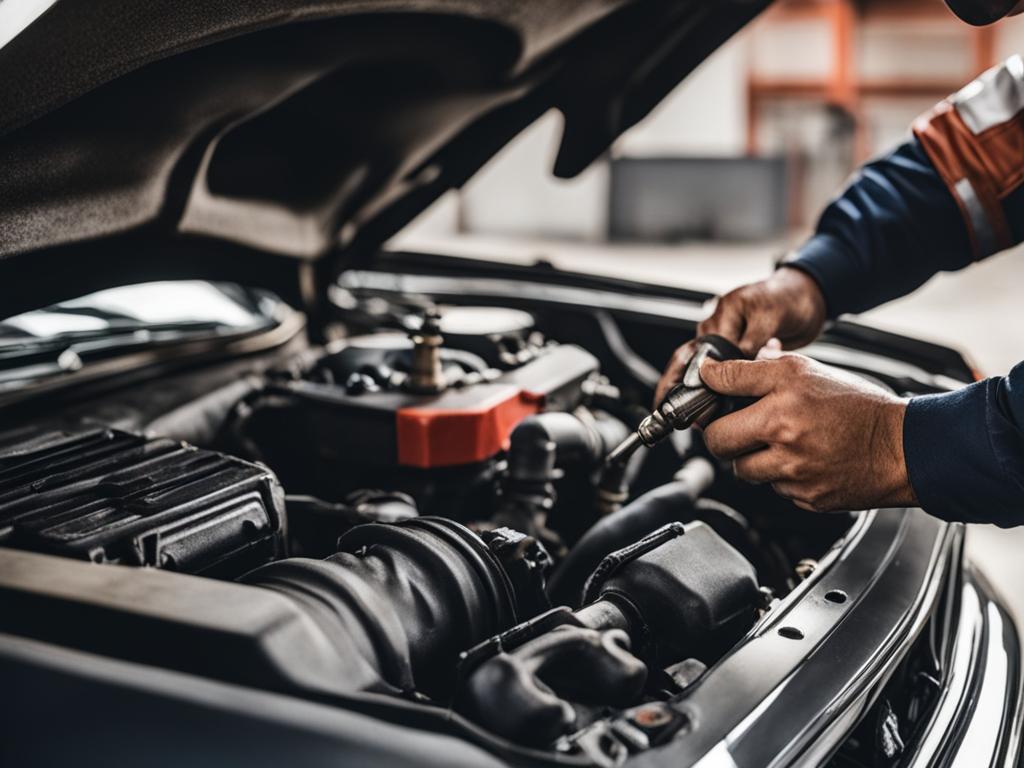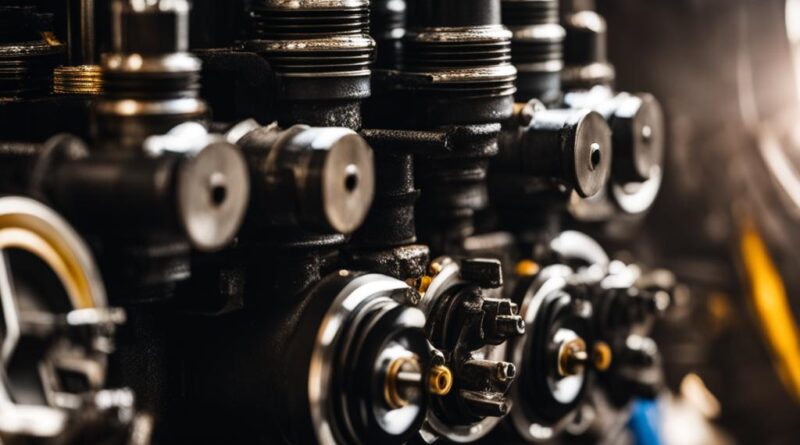Well Car Maintenance Tips for Peak Performance
Investing in well car maintenance is essential for achieving peak performance and enjoying the freedoms and achievements associated with vehicle ownership. In this article, explore maintenance tips designed to enhance vehicle reliability and extend its lifespan. Consider engine oil changes, air filter inspections, tire pressure checks, and more – all strategies for keeping your car in prime condition.
Key Takeaways
- Regular engine oil changes prevent wear and heat damage.
- Air filter inspections and yearly replacements maintain fuel economy and engine power.
- Proper tire pressure checks and tire rotations extend tire life and stability.
- Brake fluid maintenance ensures effective braking performance.
- Monitoring belts, hoses, and other crucial components can prevent engine failures.
- Adhering to manufacturer’s service schedules and maintaining records enhance vehicle value and lifespan.
Understanding the Essentials of Well Car Care
Proper vehicle maintenance is crucial for ensuring the best performance and longevity of your car. This section explores car maintenance essentials, including engine oil changes, air filter replacement, and tire pressure maintenance. By adhering to these best practices, you can enjoy a more reliable and efficient automobile.
The Role of Regular Oil Changes
Regular oil changes play a vital role in engine preservation, minimizing friction and managing heat. Consistently following recommended oil change intervals helps prevent serious engine damage. It is essential to consult your vehicle’s manual for specific timelines regarding oil changes, as adhering to these guidelines enables you to maintain a healthy engine.
Inspecting and Replacing Air Filters
Air filters are a key component affecting an engine’s health and efficiency, as they ensure an optimal air-fuel mix. They should be replaced annually or when visibly dirty to maintain peak engine performance. Failure to replace air filters can lead to decreased fuel economy and overall diminishing engine power.
Ensuring Proper Tire Maintenance
Proper tire maintenance is an integral aspect of maintaining fuel efficiency and preventing excessive tire wear. Monthly tire pressure checks are necessary to guarantee proper inflation, as under-inflated tires can lead to increased gas consumption and reduced tire lifespan. Consult your vehicle’s manual for specific tire pressure guidelines to ensure optimal performance.
Tire rotations contribute to an evenly-worn, longer-lasting tire set, ideally performed every 6,000 to 8,000 miles. Regular tire rotations help maintain consistent handling and performance, ultimately prolonging the life of your tires, ensuring a safer and more comfortable driving experience.
Maximizing Your Vehicle’s Longevity Through Maintenance
Adopting a proactive approach to well car maintenance is essential in safeguarding your vehicle’s longevity and reliability. Ensuring the proper care of vital components such as belts, hoses, and the cooling system plays a critical role in achieving a reliable well car that stands the test of time.
Regular inspections and servicing can detect early signs of wear or damage while adhering to scheduled maintenance, such as tire rotations and air filter replacements, contributes to the overall performance and longevity of the vehicle. By putting into practice these maintenance best practices, it is possible to significantly enhance your vehicle’s resale value.

Among the key factors that impact vehicle longevity is a clean and functional cooling system. To avoid overheating and ensure smooth operation, it is essential to perform system flushes at the intervals recommended by the car manufacturer.
A well-maintained transmission system is equally important for your vehicle’s longevity. Proper transmission care involves monitoring both the fluid levels and cleanliness, with transmission fluid checks and changes conducted as per the manufacturer’s recommendations.
By following a meticulous well car maintenance routine, you not only safeguard your vehicle’s reliability and performance but also significantly enhance its resale value.
- Inspect the belts and hoses: These components should be checked for signs of wear and tear. Replacing them as necessary prevents engine failures and other potential issues.
- Monitor the coolant system: Keep an eye on coolant levels and ensure the cooling system is clean and functioning effectively to avoid overheating.
- Change the air filter: Replace the air filter as per the vehicle manufacturer’s recommendations to maintain optimal engine performance and fuel efficiency.
- Rotate tires: Regular tire rotations help extend tire life and maintain stability and handling.
By prioritizing well car maintenance and taking preventive measures, you can maximize the longevity of your vehicle and enjoy a smoother, more reliable driving experience.
Tips for Optimizing Engine Performance and Efficiency
Attaining optimal engine performance and efficiency requires proper care of key vehicle components and systems. To ensure that your engine runs smoothly, improve fuel economy, and reduce emissions, following a few essential maintenance tips concerning brake fluid, transmission fluid, and cooling systems can be immensely beneficial.
Brake Fluid Checks and Replacement
Brake fluid plays a crucial role in engine performance optimization. It is imperative to perform regular brake fluid checks and monitor its hydration levels. Adhering to manufacturer guidelines for periodic fluid replacements can maintain the effectiveness of your vehicle’s braking system and contribute to overall engine efficiency. Make sure to consult your vehicle owner’s manual for the recommended brake fluid maintenance schedule.
Transmission Care and Fluid Checks
Transmission fluid care is another vital factor in optimizing engine performance. Regular checks of transmission fluid levels and its cleanliness help counteract wear and heat exposure. It is essential to change the transmission fluid according to the manufacturer’s recommendations to ensure the longevity and efficiency of your vehicle’s engine and transmission system.
Cooling System Upkeep and Coolant Replacement
An efficient cooling system is fundamental for preventing engine overheating and maintaining optimal performance. To achieve cooling system efficiency, be proactive with coolant flushes and refills as per the manufacturer’s guidelines. Proper maintenance of the cooling system will help secure a well-functioning engine that delivers optimized performance, better fuel efficiency, and reduced emissions.
Seasonal Well Car Maintenance for Peak Performance

Performing seasonal well car maintenance is crucial for achieving the best well car performance and ensuring luxury well car care. Each season presents unique challenges, and it is vital to address them accordingly to maintain your vehicle in top shape year-round.
In Winter, it is essential to take the following precautions:
- Add fuel de-icer to the tank to prevent freezing in the fuel lines
- Keep the fuel tank full to minimize moisture build-up
- Ensure a functioning heater/defroster
- Equip robust windshield wipers for increased visibility in snowy conditions
During Summer, pay close attention to:
- Air conditioning performance
- Engine cooling system functionality
- Performing oil changes for frequent short trips
Tire pressure should be checked monthly, with special attention given to lingering seasonal temperature fluctuations that may impact inflation levels. It is also crucial to ensure preparedness for unexpected situations by having adequate emergency gear for various conditions, such as winter blankets or summer coolant.
| Season | Maintenance Tips |
|---|---|
| Spring |
|
| Summer |
|
| Fall |
|
| Winter |
|
By performing regular seasonal well car maintenance, you can enjoy an efficient and smooth driving experience, safeguarding your vehicle from a variety of problems that may arise due to seasonal changes. Following these guidelines will contribute to the prolonged health and performance of your car.
Best Practices for Well Car Fuel Management
Effective fuel management is paramount to achieve an affordable and reliable well car while enhancing fuel efficiency. By adopting best practices in your daily driving routine and car maintenance, you can optimize your vehicle’s performance and preserve its long-lasting value. Below are some vital strategies to help you manage fuel consumption without compromising on cost or quality.
- Purchase quality gasoline: Regularly obtain high-quality gas from reputable stations with robust filtering policies to ensure fuel cleanliness and minimize potential engine damage.
- Monitor the fuel tank: Be observant during fuel reservoir fillings, as they may unearth sediments that can clog vehicle components. A well-maintained fuel tank will contribute to better fuel efficiency.
- Optimal tire pressure management: Maintain the correct tire pressure as per the manufacturer’s recommendations to reduce friction and ensure better fuel economy.
- Cautious acceleration: Be conscious of unanticipated movements, especially when stuck, to avoid damage to the transmission or clutch that may result in reduced fuel efficiency.
- Schedule professional transmission fluid changes: Ensure your vehicle undergoes regular transmission fluid changes, particularly after strenuous driving conditions, to facilitate smooth gear shifts and lessen mechanical stress, directly impacting fuel efficiency.
It is crucial to understand that adopting these fuel management practices will not only help sustain your vehicle’s fuel efficiency but also extend its lifespan, making it an affordable and reliable well car. Consistently following these guidelines will result in a well-maintained car that is both cost-effective and environmentally friendly.
Troubleshooting Common Well Car Issues
Being attentive to common well car issues can prevent minor problems from escalating into major repairs, helping you maintain the performance and value of your vehicle. Some key concerns include engine noises and vibrations, as well as understanding dashboard warning lights. Taking these issues seriously and acting promptly is essential for effective troubleshooting.

Addressing Engine Noises and Vibrations
Engine noises and vibrations often indicate serious complications, which warrant thorough investigation and timely action. Knowing some common sources of these issues is valuable in pinpointing the underlying causes. The table below presents a summary of typical engine problems, associated noises, and suggested troubleshooting steps:
| Problem | Noise/Vibration | Troubleshooting |
|---|---|---|
| Loose or damaged belts | Squealing or chirping | Inspect belts for wear and proper tension, replace if necessary |
| Worn or damaged bearings | Whirring or grinding | Identify affected bearings and replace |
| Exhaust system leaks | Tapping or ticking, especially during acceleration | Inspect exhaust system for leaks and repair |
| Malfunctioning transmission | Hesitation or clunking when changing gears | Check transmission fluid and replace, if necessary; consult a professional for further diagnosis |
Vigilant observation can ensure early detection of these problems, allowing you to address them before they escalate.
Understanding Dashboard Warning Lights
The dashboard warning lights of a well car are designed to alert drivers to specific maintenance needs and potential vehicle malfunctions. Some common warning lights and their meanings include:
- Check engine light: Indicates issues with the engine or emissions system
- Low oil pressure: Indicates insufficient oil pressure, potentially due to low oil levels or a malfunctioning oil pump
- Brake warning: Indicates low brake fluid or a malfunction in the braking system
- Battery warning: Signals a charging system problem or a failing battery
When warning lights illuminate, seeking professional help for a thorough assessment is a wise course of action.
In conclusion, promptly addressing engine noises and vibrations, along with understanding dashboard warning lights, aids in troubleshooting common well car issues. Ensuring timely professional checks can prevent minor issues from becoming major repairs, preserving your well car’s performance and value.
Well Car Features and Their Impact on Maintenance Routines
A well car’s features, such as its sophisticated fuel and ignition systems, demand specific maintenance routines for optimized performance. In this section, we will discuss the importance of consistent exterior care and the role of listening to your vehicle as the first indicator of potential issues.
The Importance of Exterior Care: Washing and Waxing
Regular vehicle exterior care is crucial in preserving the aesthetic and structural integrity of your well car. Washing every two weeks helps remove harmful substances such as dirt, grime, and corrosive materials that can damage the paint and other components. Waxing should be performed every six months to provide further protection against UV damage and other environmental hazards.

A well-maintained exterior not only adds to the overall appeal of your well car but also enhances its well car specifications, potentially increasing its resale value. Additionally, a clean exterior can help in identifying any potential issues, such as scratches, dents, or rust, that may require further attention.
Listening to Your Well Car: The First Indicator of Issues
One of the most important aspects of preventative maintenance routines is to pay close attention to any irregularities in your well car’s performance. Unusual sounds, vibrations, or shifts in driving dynamics often serve as early warning signs that something may be amiss.
Always be on the lookout for:
- Noises from the engine or exhaust.
- Unusual tire or suspension noises.
- Poor performance or sluggish acceleration.
- New or worsening vibrations while driving.
By keeping a keen auditory sense and addressing any issues promptly, you can help maintain your well car’s performance and prevent more serious problems from developing. This proactive approach to vehicle care ensures that your car remains in peak condition for years to come.
Emphasizing the Significance of Following Service Schedules

Adhering to the recommended service schedules mentioned in the vehicle owner’s manuals is vital for maintaining a well car’s peak performance and ensuring well car longevity. By staying on top of these schedules, potential issues can be identified and addressed in a timely manner, preventing further damage and maintaining the car’s value and reliability.
Top well car maintenance techniques typically covered in service schedules include:
- Oil and brake fluid changes
- Air filter replacements
- Cooling system inspections
- Tire rotations and pressure checks
- Transmission fluid checks and changes
Keeping a meticulous record of all maintenance activities not only helps you stay organized and aware of upcoming services but also bolsters your vehicle’s resale value. A well-documented service history demonstrates to potential buyers that the car has been scrupulously maintained throughout its life.
Following prescribed service schedules is non-negotiable for maintaining a well car’s peak condition and prolonging its reliable service life.
In conclusion, by consistently following the outlined service schedules put forth in your vehicle’s owner’s manual, you exhibit a proactive approach towards the maintenance of your well car. This attention to detail pays off in the long run, as it significantly contributes to the vehicle’s longevity, reliability, and ultimately, the return on your investment.
Conclusion
In conclusion, well car maintenance plays a pivotal role in ensuring vehicle reliability, preservation, and consistent performance. By following regular maintenance practices such as oil changes, filter replacements, and fluid level checks, car owners can experience smooth and efficient driving experiences throughout the years.
Moreover, paying attention to seasonal care and promptly addressing common issues enhances your car’s optimal condition, adding to its longevity. Adhering to manufacturer-recommended service schedules not only aids in the preservation of your vehicle but also fosters a higher resale value and longer reliable service life.
Ultimately, embracing proper maintenance techniques offers peace of mind to car owners seeking to protect their investment and enjoy seamless vehicle operation. By being proactive and diligent in maintaining their cars, owners can ensure a safe, efficient, and enjoyable driving experience for years to come.
FAQ
How often should I change my engine oil for peak performance?
It is typically recommended to change your engine oil between 3,000 to 5,000 miles, or as advised for modern synthetic oils. Always consult your vehicle’s manual for specific intervals.
How can I maintain proper tire pressure for my well car?
Perform tire pressure checks on a monthly basis to ensure proper inflation. Refer to your vehicle’s manual for specific tire pressure guidelines.
What maintenance practices can contribute to my vehicle’s longevity and reliability?
Regular maintenance, including oil changes, filter replacements, fluid level checks, tire rotations, and seasonal care, are essential for a reliable well car.
How can I optimize my well car’s engine performance and efficiency?
Regular brake fluid checks, transmission care, cooling system upkeep, and coolant replacements contribute to a well-functioning engine with optimized performance and fuel efficiency.
What should be considered for seasonal well car maintenance?
Pay attention to unique challenges each season presents, such as adding fuel de-icer during winter, maintaining air conditioning performance in summer, and keeping emergency gear for assorted conditions on hand.
What are some best practices for well car fuel management?
Regularly acquire quality gas from reputable stations, maintain optimal tire pressure, and be cautious during acceleration. Schedule professional transmission fluid changes, particularly after strenuous driving conditions.
How can I troubleshoot common well car issues?
Address any engine noises and vibrations as they may signal early warnings for more serious complications. Do not disregard dashboard warning lights and seek professional checks when necessary.
How do well car features impact maintenance routines?
Well car features, such as sophisticated fuel and ignition systems, require specific maintenance routines for optimized performance. Maintain consistent exterior care and keep an ear out for irregularities that may signal deeper issues.
Why is following service schedules crucial for my well car?
Following prescribed service schedules ensures that potential issues are timely identified and addressed, prolonging your vehicle’s reliable service life and enhancing its resale value.




